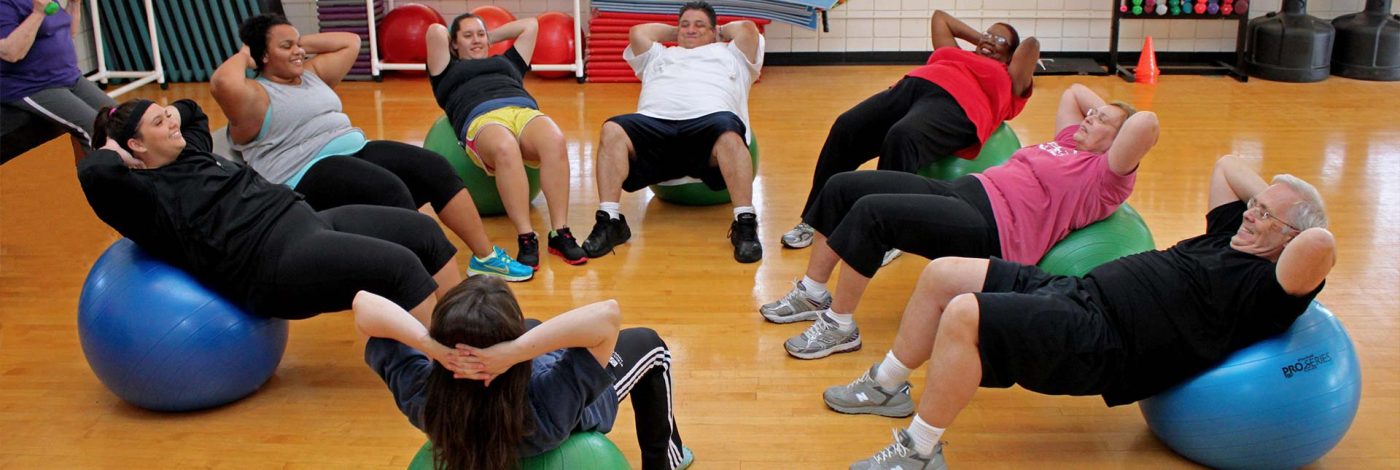One common headline during the COVID-19 pandemic relates to how obesity is a significant risk factor for suffering complications of the illness.
Currently, scientists believe that the virus binds to fat cells. Using that logic, the more fat cells a person has, the more likely they are both to contract the disease and to have difficulty fighting it. Therefore, many people who struggle with obesity have found yet another motivator to address their overeating and sedentary behaviors.
At Structure House, participants certainly shed fat, which heightens their ability to combat the illness. More importantly, however, they learn the skills and strategies to end the vicious cycle of emotional eating that has likely led to a lifetime of struggles with weight.
Since March, our planet has engaged in social distancing efforts to slow the spread of the illness. One result is that many people have found themselves with more time on their hands as they stay in their homes for days and weeks on end.
Structure House teaches participants that the three main contributors of overeating are stress, habit, and boredom. Understandably, many have faced all three of these challenges during periods of self-isolation. Stress can manifest itself as depression, anxiety, loneliness, fear, and general malaise. Bad habits — eating in front of the television, relaxing with a bowl of ice cream, or snacking on foods laying out on the kitchen counter — are hard to avoid when one is homebound. Boredom, even when the day is filled with “to-dos” but relatively few “want-tos,” can set in, and food is a way to get a few moments of escape, pleasure, or diversion. It is no wonder that people have gained weight during this period.
For more than 40 years, Structure House has taught its participants how to deal with the concerns that inevitably lead to overeating. For stress, progressive muscle relaxation, visualization, and breathing techniques have been shown to decrease both the physiological and psychological correlates of the stress response, and participants gain proficiency in utilizing these during their stay. With regard to habit, there is nothing quite like residential treatment, where a participant leaves their usual surroundings and practices healthier habits that feel like the new normal by the time they leave campus. Finally, dealing with boredom often involves looking holistically at life to assess whether a person might find more meaning, more fulfillment, and more satisfaction. Structure House’s therapy staff helps participants grow in ways they never dreamed possible.
In short, a visit to Structure House is an excellent way to take control amid the chaos. Losing those virus-loving fat cells while learning strategies to combat the forces that lead to overeating packs a double punch in improving chances to overcome the illness.
For some, the virus was the wake-up call they needed to finally take back the power and change their lives for the healthier.
Dr. Katie Rickel graduated summa cum laude from Duke University with a Bachelor of Science in psychology and earned a Ph.D. in clinical psychology from the University of Florida. She completed an APA-accredited clinical internship in health psychology at Duke University Medical Center, with advanced training in behavioral and bariatric obesity treatment as well as the psychological management of chronic pain and illness. Dr. Rickel also has expertise in treating anxiety disorders, including obsessive-compulsive disorder and specific phobias. Her research has been presented at various professional conferences and published in scientific journals. Dr. Rickel has also appeared on “The Dr. Oz Show” and has been quoted in several popular media outlets, including the Wall Street Journal, Huffington Post, Health magazine, Yahoo! Health, Women’s Health magazine, Weight Watchers magazine, and abcnews.com.
Digital publications:
How to Stay Healthy, Even When You’re Traveling , Curvy Girl Health
“DNA Diets”: Miracle or Scam? , Curvy Girl Health
Conquering Your Gym Phobia , Curvy Girl Health
Taking the Scary Out of the Scale , Curvy Girl Health
Interview With Dr. Katie Rickel: “Weight loss is not just about eating less and moving more” , HealthReporter
Journal publications:
Differential Response of African-American and Caucasian Women to Extended-Care Programs for Obesity Management , Ethnicity and Disease, 2011Problem Solving, Treatment Adherence, and Weight-Loss Outcome Among Women Participating in Lifestyle Treatment for Obesity , Eating Behaviors, 2009The Contributions of Weight Loss and Increased Physical Fitness to Improvements in Health-Related Quality of Life , Eating Behaviors, 2009Rickel, K. (2012) This Year’s Resolution: Maintain Your Motivation. HealthUpdate: The Patient’s Guide to Wellness. American Hospitals Publishing Group, Int,12(1),7.
Rickel, K.A. & Friedman, K.E. A significant percentage of WLS patients complain that they have difficulty maintaining their motivation to exercise. Are there any techniques that I might use to enhance their motivation? Ask the Expert Column. Bariatric Nursing and Surgical Patient Care, 3(2), 167-170.
Edwards, C.L, & Rickel, K. (2008). An Introduction to Eating Disorder and Weight Management [Review of video entitled Problems of Eating and Weight Management with G. Terrence Wilson. PsycCRITIQUES: Contemporary Psychology, APA Review of Books, 53 (26), Article 11.
Featured in:
6 Major Benefits of Stepping Outside of Your Comfort Zone , WeightWatchers6 Benefits of Breaking Your Go-To Routine , WeightWatchersHow to Lose Weight in a Way That’s Actually Empowering , TimeDo You Have to Ditch Alcohol to Lose Weight? , ABC News‘My Pants Didn’t Fit’: Travelers Checking In at Fitness Resorts to Drop Pandemic Pounds , CNN TravelFighting Fat Discrimination, but Still Wanting to Lose Weight , The New York Times8 Ways to Change Your Set Point Weight , MyFitnessPalWhat is the Noom Diet? , ElementalGreat Ways to Lose Weight Without Really Trying , Next AvenueTake Control of Your Disease Instead of Allowing Your Disease to Control You , MCL World25 Amazing Weight Loss Tips from the Stars , Now to LoveThe 30 Best Breakfast Habits to Drop 5 Pounds , Medium8 Ways to Lose Weight Without Really Trying , Modern Ghana5 Ways COVID-19 Could Have Hurt Your Relationship with Food – And How to Deal , MyFitnessPalGreat Weight Loss Habits that Work, According to Experts , Eat This, Not That!9 Secrets to Lasting Weight Loss , Yahoo! LifeAre Your Friends Sabotaging Your Diet? , Prevention6 Resilience Tips to Keep Your Weight Loss on Track ?, Scooper News Health Issue10 Methods Being Affected Person Can Assist with Weight Loss , WSGEI NewsChronic Pain and Food Addiction , Eating Disorder Hope6 Common Reasons People Fear Losing Weight , Victoria Advocate7 Things People Who Feel Half Their Age Do Every Week , Silver SneakersHow to Ditch Weight Stigma and Reach Your Goals , MyFitnessPal8 At-Home, Self-Care Strategies That Can Help You Lose Weight , MyFitnessPalHow to Start Your Journey to Lose Weight , MyFitnessPal9 Signs You Need to Rehab Your Relationship with Food , MyFitnessPal6 Resilience Tips to Keep Your Weight Loss on Track , MyFitnessPal5 Ways to Ditch Dieting-Related Mood Swings , MyFitnessPalScience Shows Losing Weight Could Help Ease Depression , MyFitnessPal12 Ways to Stop Stress Eating , MyFitnessPalHere’s How to Go on a Diet Without Feeling Cranky , The List10 Things the Weight-Loss Industry Won’t Tell You , MarketWatch25 Weight Loss Hacks to Help You Nail Your 2018 Resolutions , Life & Style Magazine12 Ways to Stop Stress Eating , The Gameplan for Living8 Methods to Change Your Set Level Weight , RMKSAWhat’s the Difference Between Dieting and Healthy Eating? , Gear Up to Fit3 Easy Ways to Break Your Junk Food Snacking Habits , SheKnows20 Pounds Younger: The Life-Transforming Plan for a Fitter, Sexier You! , Michele Promaulayko & Laura TedescoSleep and Weight Loss: Is There a Connection? , National Council on Aging
Selected published abstracts and conference presentations:
Rickel, K.A., Gibbons, L.M., Milsom, V.A., DeBraganza, N., Murawski, M.E., Nackers, L.M. & Perri, M. G. (2007). Racial/ethnic differences in the effectiveness of extended care following lifestyle intervention for obesity. Poster presented at the 28th annual meeting of the Society of Behavioral Medicine. Washington, D.C. (Published Abstract).
Rickel, K.A., Durning, P.E., Debraganza, N., Milsom, V.A., Murawski, M.E., Gibbons, L.M., & Perri, M.G. (2006). Treatment of Obesity in Underserved Rural Settings (TOURS): Changes in physical activity and physical fitness in African-American and Caucasian women. Poster presented at the 27th annual meeting of the Society of Behavioral Medicine. San Francisco, CA. (Published Abstract).
Rickel, K.A., Milsom, V.A., Murawski, M.E., DeBraganza, N., Fox, L.D. Durning, P.E., Janicke, D.M., & Perri, M.G. (2005). Do self-reported changes in diet or exercise predict weight loss in lifestyle treatment of obesity? Poster presented at the 18th Annual College of Public Health and Health Professions Research Day. University of Florida, Gainesville, FL.
Rickel, K.A., Durning, P.E., & Perri, M.G. (2004). Treatment Preference and Perceived Difficulty as Predictors of Exercise Adherence. Poster presented at the 25th annual meeting of the Society of Behavioral Medicine. Baltimore, MD. (Published Abstract).
Milsom, V.A., Rickel, K.A., DeBraganza, N., Gibbons, L.M., Nackers, L.M., Durning, P.E., & Perri, M. G. (2007). Contributions of weight loss and physical activity to improvements in fitness and metabolic profile. Poster presented at the 28th annual meeting of the Society of Behavioral Medicine. Washington, D.C. (Published Abstract).
Gibbons, L.M., DeBraganza, N., Milsom, V.A., Murawski, M.E., Nackers, L.M., Rickel, K.A., Durning, P.E., & Perri, M. G. (2007). Do the benefits of weight-loss treatment outweigh the risks for elderly, obese women? Poster presented at the 28th annual meeting of the Society of Behavioral Medicine. Washington, D.C. (Published Abstract).
Nackers, L.M., Milsom, V.A., Gibbons, L.M., DeBraganza, N., Rickel, K.A., & Perri, M.G. (2007). Is it better to have lost and regained than to never have lost at all? The impact of weight regain on metabolic risk factors. Poster presented at the 28th annual meeting of the Society of Behavioral Medicine. Washington, D.C. (Published Abstract).
Milsom, V.A., Gibbons, L.M., Debraganza, N., Rickel, K.A., Murawski, M.E., Durning, P.E., & Perri, M.G. (2006). What constitutes a successful weight-loss outcome? The impact of 5% and 10% weight reduction on metabolic risk factors for disease. Poster presented at the 27th annual meeting of the Society of Behavioral Medicine. San Francisco, CA. (Published Abstract).
Gibbons, L.M., Milsom, V.A., Murawski, M.E., Debraganza, N., Rickel, K.A., Durning, P.E., & Perri, M.G. (2006). Length of treatment and successful outcome in the management of obesity. Poster presented at the 27th annual meeting of the Society of Behavioral Medicine. San Francisco, CA. (Published Abstract).
Lutes, L.D., Perri, M.G., Dale, M.S., Milsom, V.A., Debraganza, N., Rickel, K.A., Durning, P.E. & Bobroff, L.B. (2005). Treatment of Obesity in Underserved Rural Settings (TOURS): Changes in nutritional intake in African-American and Caucasian women. Poster presented at the 27th annual meeting of the Society of Behavioral Medicine. San Francisco, CA. (Published Abstract).
Fennell, E.B., Kelly, K.G. & Rickel, K.A. (2005). Pediatric case studies in neurocognitive sequelae of familial Myelomeningocele. Poster presented at the 33rd annual meeting of the International Neuropsychological Society. (Published Abstract).
Murawski, M.E., DeBraganza, N., Rickel, K.A., Milsom, V.A., Durning, P. E., Fox, L.D., Janicke, D. M., & Perri, M. G. (2005). Treatment of Obesity in Underserved Rural Settings (TOURS): Effects on quality of life. Poster presented at the 26th annual meeting of the Society of Behavioral Medicine. Boston, MA. (Published Abstract).
Milsom, V.A., Rickel, K.A., Murawski, M.E., DeBraganza, N., & Perri, M.G. (2005). Weight loss improves functional mobility in older obese women. Poster presented at the 26th annual meeting of the Society of Behavioral Medicine. Boston, MA. (Published Abstract).
Aranda, M., Meisel, F., Bearn, L., Rickel, K., & Ferrante, F.M. (2001). The effect of ethnicity on the treatment of low back pain. Abstract presented at the 2001 Annual Meeting of the American Society of Anesthesiologists. New Orleans, LA.
View all posts by Katie Rickel, PhD






